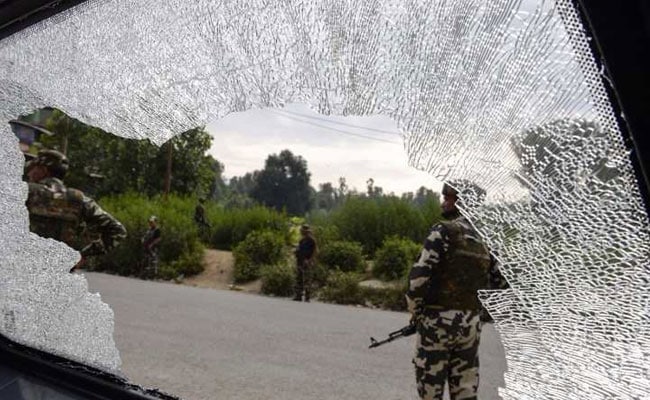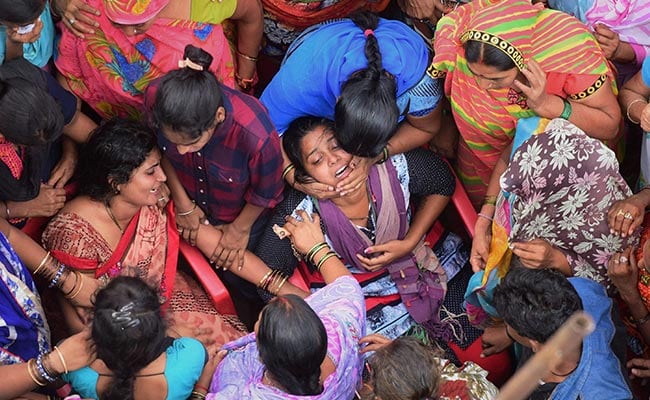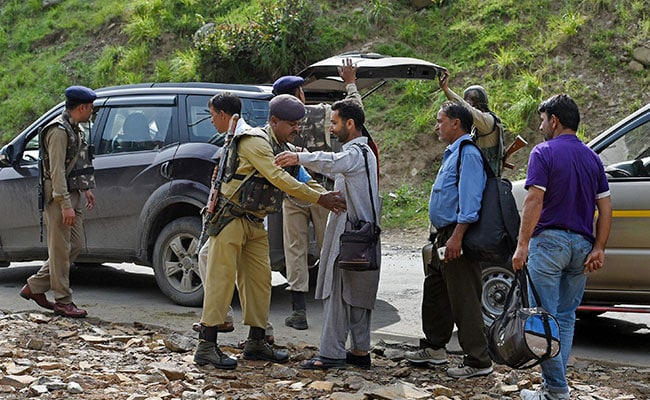The cowardly and barbaric terrorist attack on Amarnath pilgrims has killed seven of them, including five women, and injured many more. The central government has expressed its resolve to identify, apprehend and punish those guilty of this dastardly crime. Every citizen of India would want this to happen without any delay. The CPI(M), while strongly condemning the attack, has expressed its deep condolences to the bereaved families and wished a speedy recovery to those injured.
There is also legitimate concern as to how such a terrorist attack could take place in spite of the heavy security measures which were said to have been made for the annual pilgrimage to Amarnath. It is reported that intelligence agencies had issued an alert about terrorists plan to attack the yatris. There are also reports that the bus disregarded the rules laid down for all participants of moving in a convoy, the times for movement and so on. The government must conduct an urgent inquiry into these issues including whether there were any security lapses and take appropriate measures.
There have not been such direct attacks on the Yatra for the last fifteen years. The last time such horrific attacks took place on the Amarnath Yatra were in the three consecutive years of 2000, 2001 and 2002 when the Vajpayee Government was ruling at the centre and its then ally, the National Conference, was ruling the state. The worst attack in terms of numbers of those killed was in 2000 when the base camp in Pahalgam was attacked and over 80 people were killed.

Seven pilgrims were killed in the Amarnath Yatra terror attack
While it is yet to be established as to which terrorist group is behind the present attack, the role of Pakistan in promoting, patronizing and sponsoring such dastardly attacks has been well established.
The politics behind this attack and steps to defeat the nefarious aims of the terrorists is as important to understand and address as are the administrative measures the government must take. This in turn is linked to the turmoil in Kashmir and the widespread disaffection and alienation of the people of Kashmir from the Indian establishment and its policies.
The smooth conduct of the Amarnath Yatra with the support of local people along its route has symbolized the pluralist culture of Kashmir and Kashmiriyat. There have been numerous examples when it is the locals who have come to the assistance of yatris. Even last year, when the Valley was riven with militant protests, firings and curfew in the wake of the killing of Burhan Wani, the example of locals helping out yatris caught in a tragic bus accident, even as the rest of the convoy sped past, was an example of this culture. The political aim of those who mastermind and who carry out terror attacks on innocents, targeting religious beliefs, is precisely to destroy what remains of this culture. The difference between 2000 and 2017 is the harsh reality that religious extremists owing allegiance to the most sectarian Islamist ideologies, far removed from the culture and way of life and traditions of Kashmir, are gaining influence, especially among a section of the youth.

Family members mourn the victims of the Amarnath Yatra terror attack
But instead of understanding the different dimensions of the issues, instead of initiating a political dialogue the present central government and its coalition government in the state have gravely erred by looking at Kashmir only through the narrow prism of "security" while refusing to address the political dimensions. The Modi Government has turned its back on what Vajpayee-ji had said as Prime Minister in his Independence Day speech in 2002. "For us, Kashmir is not a piece of land…it is a test case of secularism. India has always withstood the test of a secular nation. Jammu and Kashmir is a living example of this."
But today we are failing this test, we have ignored the needs and voices of the people of Kashmir, we have reduced the entire issue to one concerning Pakistan, thereby strengthening and helping their goal of keeping Kashmir in a state of permanent turmoil and disaffection while the anti-Kashmiriyat forces gain support. The very same population which today is so alienated had created history just three years ago when it turned its back on the militants' call for a boycott of the assembly elections with the largest turnout in each of the five phases of the elections: from the lowest at 49 per cent to the highest at 72 per cent and an average voter turnout in all the phases of around 65 per cent. The Prime Minister had visited the Valley as part of the election campaign several times and in his speech at the Sher-i-Kashmir Stadium in Srinagar had declared, "I have come to share your pain and sorrow. Your sorrow is my sorrow, your pain is my pain, your problem is my problem…" The people gave his government a chance. The sense of betrayal therefore is all the greater.

According to reports, intelligence agencies had issued an alert about terrorists plan to attack the yatris (File photo)
Equally tragically, the aim of the terrorists to decimate the culture of Kashmiriyat gets a big boost when, in the rest of India, the ruling party patronizes and promotes politics to divert the attention of the people from the failures of the government in their day-to-day lives with slogans and actions to deliberately polarize and divide people on communal lines. In the name of nationalism, the worst kind of jingoistic, chauvinistic and communal politics is propagated day after day, the target being all those who oppose the Hindutva agenda of the ruling combine. Kashmiris in particular are soft targets when they migrate in search of a livelihood to other parts of India, or when as students they seek better educational facilities than are available in the Valley. When Kashmiri shopkeepers in Mussoorie are threatened with eviction, or when Kashmiri students in Delhi or Rajasthan are beaten or viewed with hostility and suspicion on the understanding that every Kashmiri is a terrorist, it fuels the alienation in the Valley. It is most welcome therefore that at this time, the Home Minister of India, Shri Rajnath Singh, has reiterated that the job of his ministry is to maintain harmony. Each form of fundamentalism and communalism strengthens the other.
While mourning for those innocents who were brutally shot down on their way back from a pilgrimage to Amarnath, while committing ourselves as citizens to fight terrorism, our resolve to fight all those forces who divide people in the name of religion, whether we are in Srinagar or in Delhi, must be strengthened.
Brinda Karat is a Politburo member of the CPI(M) and a former Member of the Rajya Sabha.
This article was first published on NDTV, Republished with Authors Permission.